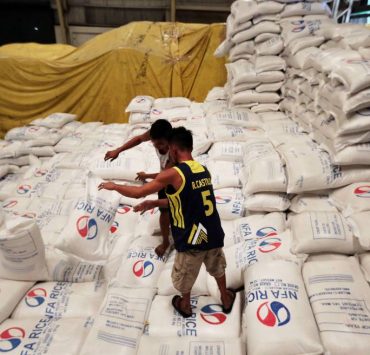Scrutinize seasonal workers’ program
Our labor export policy is nothing new and is part of the 1974 development program of then President Ferdinand Marcos Sr. and his technocrats to solve the country’s unemployment problem while generating foreign currency from overseas Filipino workers (OFWs).
Why then should we scrutinize the latest export of farmworkers to South Korea under the Seasonal Worker Program (SWP) that has been in place since 2017, but started deploying workers in 2022? Why begrudge these workers the chance to work and earn overseas like the 1.96 million OFWs as of September 2022, whose remittances reached at least $37.2 billion between January and December 2023?
The SWP is an initiative between South Korea and its partner local government units (LGUs) to address this country’s chronic labor shortage during the peak planting and harvesting seasons, owing to its aging workforce.
Desperate conditionsThe program allows seasonal workers to work in agricultural fields for six to eight months, with wages of about P80,000 a month. As of December 2023, there were 3,353 Filipino farmworkers deployed in South Korea, Department of Migrant Workers (DMW) officer in charge Undersecretary Hans Leo Cacdac said.
The DMW, however, issued a moratorium in January on the deployment of OFWs under the program following reports of “illegal recruitment, labor, and welfare cases,” including 150 complaints of questionable deductions in wages by brokers and recruiters. It also documented five cases of physical abuse, five medical cases, and four deaths in the course of two years, Cacdac said.
But why do abuses persist despite the DMW’s assurances of overseeing the workers’ valid work contracts, appropriate working conditions, insurance, and welfare coverage as members of the Overseas Workers Welfare Administration, and its memorandum barring the collection of illegal fees either in the Philippines or in South Korea?
If anything, the ills of the SWP merely reflect the desperate conditions of our agricultural workers given the government’s general apathy to the agriculture sector, even with President Marcos himself taking the reins for almost two years.
Neglect of the agriculture sectorCompare the P573 a day or about P12,400 a month that most agri workers earn in Metro Manila, to the 1.8 million and 2.2 million Korean won, or P75,600 to P92,400 monthly being offered under the SWP, and you’d understand why farmworkers would grab at the chance, no matter the onerous conditions imposed by unscrupulous recruiters and brokers.
A September 2022 Korea Daily report noted that various deductions leave the farmworkers with just half of their wages, with no complaints lodged for fear of them being blacklisted by the recruiters.
The government’s neglect of the agriculture sector is apparent to the average Filipino who has had to cope with the chronic shortages and skyrocketing prices of onions, other local vegetables, and rice in the past year or so. Farmers blame this on the prohibitive cost of farm inputs, the rice tariffication law and other government policies, and corruption as seen in the anomalous disposal of rice stocks at the National Food Authority, unchecked smuggling of competing crops, and lately, the lack of preparation for El Niño that has dried up once fertile fields. Add to that the lack of subsidies and cold storage facilities that have made farming an unstable and precarious source of living.
Better leverageNeedless to say, this is the sorry situation that the government must address to give farmworkers better leverage when dealing with recruiters. LGUs, too, must intervene—preferably with DMW guidance—to make sure that fair wages and good working conditions are met before the workers are sent off, instead of relying solely on private agencies and recruiters.
SWP irregularities have prompted the justice department to stress that though there is no law that forbids LGUs from entering into agreements with other countries, such deals have to comply with DMW rules which the agency must strictly enforce. The LGUs meanwhile are expected to conduct orientation for the farmworkers on their rights and responsibilities, the DMW said.
Some LGUs are doing just that, notably the provincial government of Dinagat Islands that gave 240 farmworkers a 15-day basic Korean language course to help them communicate with their employers and do a better job. The LGU’s orientation program also covers thorough training on basic agriculture, and a briefing on South Korea’s culture, tradition, customs, and work ethics to cushion whatever culture shock the workers face.
Default solutionOn top of its interim guidelines released in February on processing Filipino workers under the SWP, the DMW said it is also pushing for a formal government-to-government agreement on labor standards with South Korea and its labor ministries.
As it should. The government must put in place protective measures to protect these farmworkers as they seek better wages abroad. But exporting our farmworkers should not be our default solution to the government’s continuing failure to uplift the agriculture sector. Who are we going to export next?

















